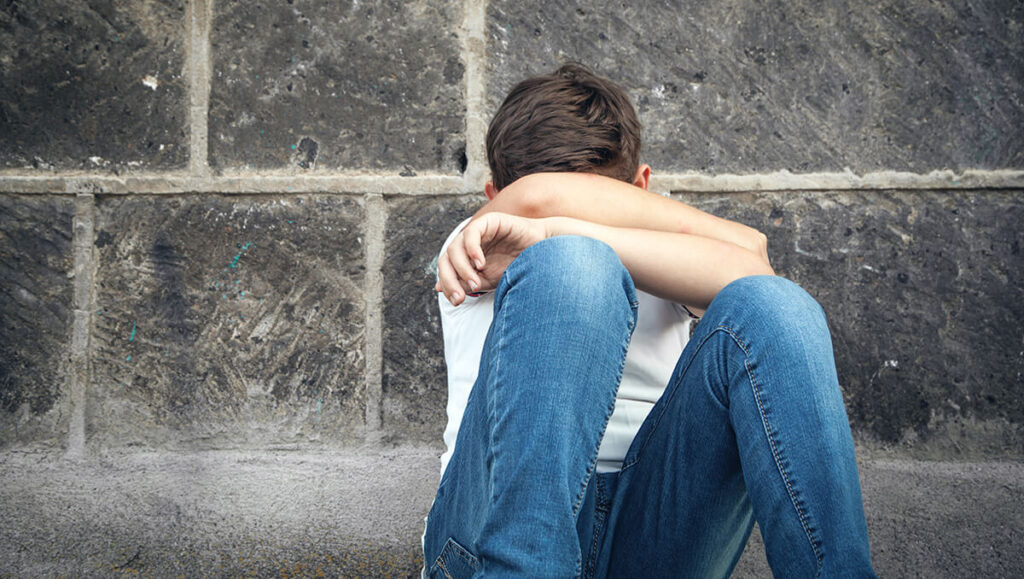Substance abuse disorders and alcoholism are chronic mental health diseases that impact your thoughts, feelings, and behaviors. When you struggle with a substance abuse disorder, it can negatively impact your health, relationships, and finances. Symptoms, such as cravings, can occur throughout recovery, making it important to learn about coping with loneliness and other triggers.
Addiction can develop within weeks, months, or years of your first use. When you develop an addiction, your substance of choice becomes the main priority in your life. When this happens, it can cause you to neglect your responsibilities and divert money to your addiction, which can cause bills and debt to pile up. To learn about our adolescent addiction treatment options, contact Foothills at Red Oak today at 866.300.5275.
How Addiction Works
Each year, 4.2 million American teens use substances such as drugs or alcohol. Psychoactive substances, like alcohol, opiates, and cocaine, are neurotransmitter inhibitors. When you use a psychoactive substance, your brain releases a rush of pleasurable neurotransmitters. Substances can cause your brain to release excess:
- Dopamine
- Norepinephrine
- Seratonin
- GABA
The rush of pleasurable neurotransmitters causes the pleasurable effects of intoxication. When intoxication ends, you have a depletion of neurotransmitters. The lack of pleasurable neurotransmitters causes emotional changes, such as negative moods, and cravings. Your brain’s pleasure and reward center associate your substance of choice and everything that reminds you of the substance with pleasure. This association causes your brain to reward your substance use and punish your sobriety by controlling the release of neurotransmitters.
If you have a co-occurring mental health disorder, drugs and alcohol can aggravate and destabilize your mental health by creating neurotransmitter imbalances. Suffering from a mental health disorder can increase your risk of experimenting with drugs and alcohol. Substances can temporarily relieve your mental health symptoms but ultimately worsen your mental health.
As addiction progresses, it can cause increased conflict with your friends and family members. Addiction can also cause you to lose your job, your grades to go down in school, or spend lavishly on your substance of choice. The financial implications can result in housing instability and mounting debt.
Coping with Loneliness
During substance abuse treatment, you learn how to identify and change negative thoughts, feelings, and behaviors. Additionally, rehab teaches you how to combat cravings and cope with triggers. During addiction, your life centers on using and acquiring your substance of choice. Sobriety can cause you to have more free time, which makes coping with loneliness important. Part of recovery is avoiding relationships with people who continue to use drugs and alcohol.
If most or all of your friends use drugs and alcohol, it can create a social void that causes loneliness. Loneliness is a common addiction trigger, which makes coping with loneliness a central component of sobriety and recovery. Loneliness can occur during all stages of recovery. Coping with loneliness involves finding healthy hobbies and cultivating healthy relationships.
Recovery is a great opportunity to rediscover your passion for hobbies you neglected during addiction or developing new interests. Coping with loneliness also includes finding a healthy support network. Peer-led support groups, like NA, AA, and SMART Recovery, can help you develop a group of sober friends, which can make coping with loneliness easier. Many people in recovery coping with loneliness choose to explore new hobbies, such as working out or continuing your education.
Substance Abuse Treatment
Coping with loneliness can be difficult without help. Substance abuse treatment provides you with the tools, guidance, and understanding you need to successfully achieve lasting sobriety. Rehab addresses how coping with loneliness is an essential part of your recovery journey, which ensures you are prepared for life after treatment. Since addiction is a chronic and incurable condition, learning how to develop healthy coping strategies and prepare for obstacles during recovery is an important way to protect your sobriety. Contact us today at 866.300.5275 to review your treatment options.

